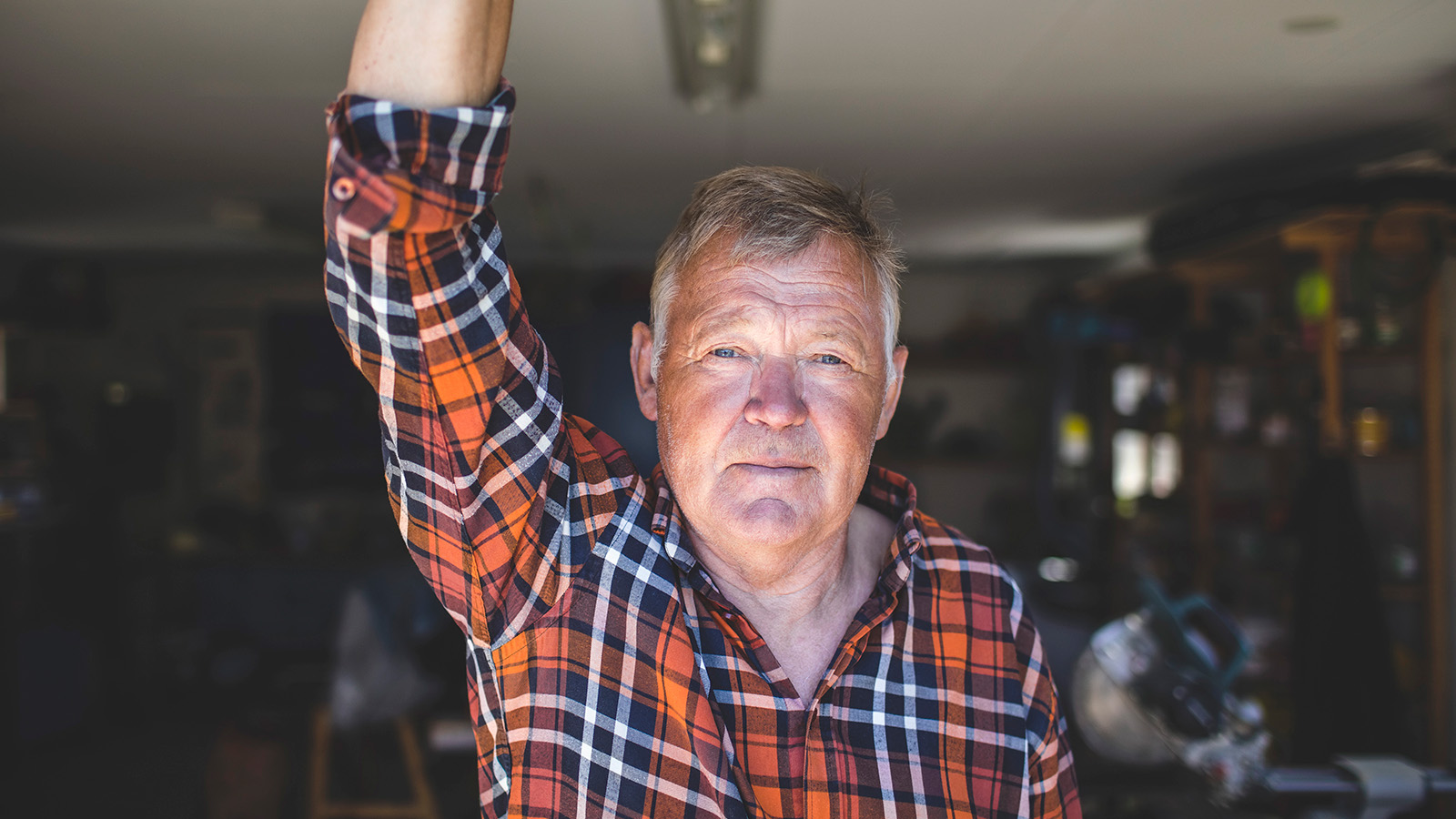Basics of IPF

Idiopathic pulmonary fibrosis (or IPF for short) is a rare disease. The cause isn’t known but is probably part inherited and part from exposure to things like chemicals, smoke or pollution. With IPF, you have a dry cough that can be very bothersome, get tired very easily and are short of breath, especially as your lungs become more and more scarred. You might have heartburn or other symptoms, too. Sticking to your therapies and living a healthy lifestyle can help slow down the disease and help manage your IPF.
How IPF affects you
Your body works hard to keep you healthy. For example, when you get a lung infection or your lungs get irritated from things like smoking, pollution or chemicals, the body responds by killing the bacteria or getting rid of damaged cells. In the case of IPF, your lung tissues don’t heal well. This can cause your lungs to become scarred or “fibrotic.” Scarred tissue can’t exchange oxygen, so oxygen can’t get from your lungs through the rest of your body. Scarred lungs make it harder for you to breathe.
Testing and monitoring
Your doctor will run tests to help diagnose IPF. The best test is a special computerized tomography (CT) scan that looks for specific changes in your lungs. Your doctor may also run routine tests to check how well your lungs are working. These tests might include spirometry (a breathing test to find out how your lungs work) and an arterial blood gas (a blood test that measures how much oxygen is in your blood). Your doctor may also order blood tests to check your liver. You might choose to go to a lung doctor, or pulmonologist, who specializes in treating people with IPF.
Sticking to your therapy
There is no cure for IPF today, but there are two medications that may slow down the scarring. It’s important to stay on your treatments to help you feel better.
To help you breathe better and take in more oxygen, the doctor may prescribe oxygen therapy. You may need to use the oxygen only when you are active, or you may need to use it all the time. Over time, you may rely on your oxygen therapy more. The doctor may also prescribe pulmonary rehabilitation (rehab). Pulmonary rehab helps you learn how to save your energy so you can do more things you love.
You may get to a point where you need a lung transplant. You will have many tests to see if you are a good candidate for a lung transplant. Your doctor can tell you more about transplants.
Healthier lifestyle
There are things that you can do to help you through your journey, like:
- Learn as much as you can about IPF
- If you smoke, quit
- Use your oxygen as you need to
- Keep up with your flu and pneumonia vaccinations
- Join a support group
If you have any questions about IPF or your treatment, or have concerns about side effects, talk to your doctor. Your IPF CareTeam is also here for you when you need us.
This information is not a substitute for medical advice or treatment. Talk to your doctor or health care provider about your medical condition and prior to starting any new treatment. CVS Specialty assumes no liability whatsoever for the information provided or for any diagnosis or treatment made as a result, nor is it responsible for the reliability of the content.
CVS Specialty does not operate all the websites/organizations listed here, nor is it responsible for the availability or reliability of their content. These listings do not imply or constitute an endorsement, sponsorship, or recommendation by CVS Specialty.
Your privacy is important to us. Our employees are trained regarding the appropriate way to handle your private health information.
